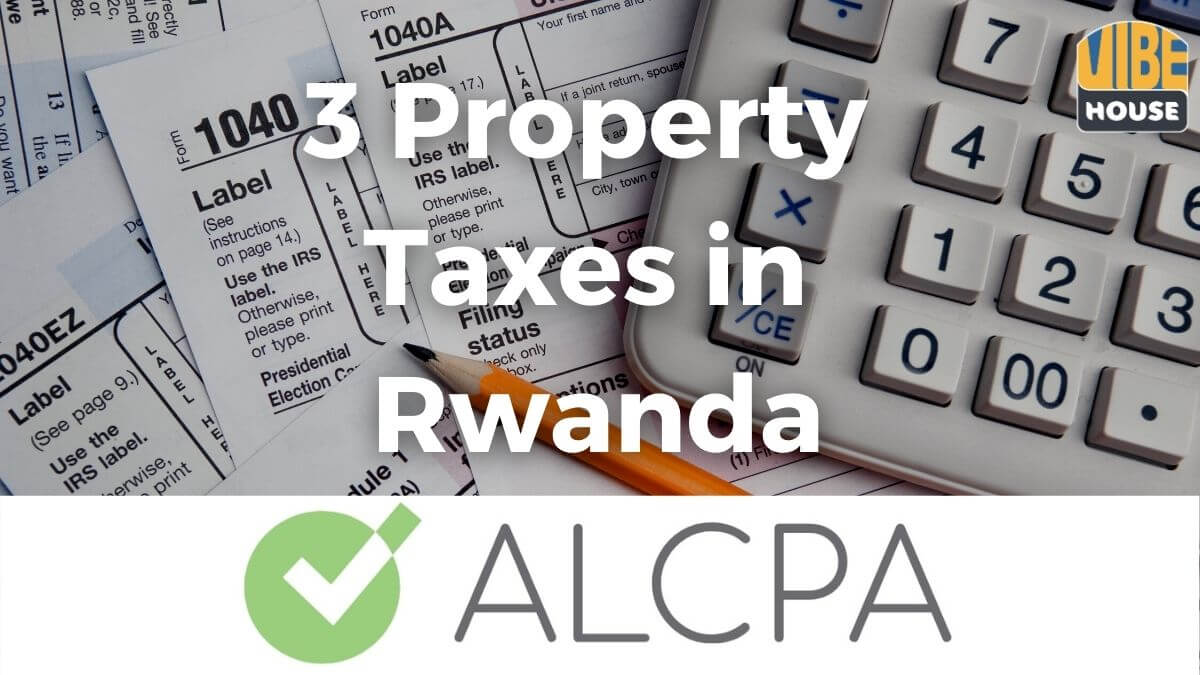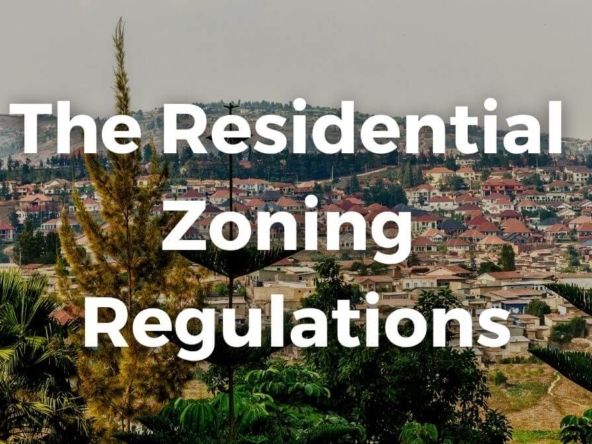By Akash Ladha, Managing Partner of ALCPA – A leading Audit & Advisory Firm in Kigali. ALCPA is happy to provide you with more information and answer questions you may have. You can contact ALCPA on +250-787-200-784 or team@alcpaltd.com.


Rwanda’s real estate and property market attract a lot of domestic and foreign investment. If you are planning to invest in immovable property in Rwanda (land, residential/commercial buildings) it is critical to have an understanding of all the taxes involved, as the tax implications of buying and/or renting a property in Rwanda have a significant impact on your return on investment. This guide presents a simplified summary of taxes on immovable property, it would assist you in an informed decision making.
The 3 taxes you need to know
There are mainly 3 taxes on Immovable Property – Immovable Property Tax (IPT), Rental Income Tax (RIT) and Value Added Tax (VAT). All the taxes are assessed and paid by the owner. If the owner is not based in Rwanda a proxy may be appointed in Rwanda for tax purposes. Taxes must be declared and paid every year (IPT – before 31 December of that year; RIT – before 31 Jan of following year).
Immovable Property Tax (IPT)
Immovable Property tax (IPT) is assessed separately for land and the building thereon every year. The tax rate for land is prescribed by respective district councils, basis location of land and its use, and is up to Frw 300 per square meter. This tax rate is multiplied to the whole surface area of land plot to calculate IPT on land.
The tax rate for buildings varies from 0.1% to 1% depending on type of building. The tax rate is multiplied by the market value of building to calculate IPT on building. The market value of a building needs to be assessed by a certified valuer every 5 years.
Rental Income Tax (RIT)
Rental Income Tax (RIT) is the tax on rental income for leased properties. Any individual earning only rental income with no income from any other business in Rwanda must register for RIT and submit rental contracts within 15 days to RRA.
RIT is calculated by applying RIT rate to taxable rental income. RIT is not charged on gross rental income. Taxable rental income is calculated after deducting certain allowed expenses from gross rental income. Firstly, a flat 50% of gross rental income earned during the year is allowed as deduction. This is assumed to be maintenance and repair expenses for which no supporting documents are required. Secondly, Interest on a bank taken for purchase and construction of the asset is also allowed as a deduction. RIT is a progressive tax wherein there are different RIT rate brackets (ranging from 0% to 30%) depending on taxable rental income.
If the person is registered under Corporate Income Tax (CIT), the rental income can be consolidated with other business income under CIT. In such case, no RIT would be applicable. A flat CIT tax rate of 30% is levied on total business profit (including the rental profit). Business profit is calculated after allowing for deductible business expenses. These expenses should be incurred for the direct purpose of the business and substantiated with proper purchase receipts. A depreciation allowance at 5% of the cost of the building is also allowed as a deductible expense. No depreciation allowance can be claimed on the cost of land. Interest expenses for the direct purpose of the business are also an allowable deduction to compute business profit.
Value Added Tax (VAT)
Finally, Value Added Tax (VAT) at 18% is levied on rental income earned on properties leased for commercial purposes. VAT rate of 18% is applied on rental amount exclusive of VAT. VAT is a tax burden on the lessee, hence lessee pays to lessor amount inclusive of VAT. The lessor is required to collect VAT and pay it to the tax authorities. The lease contract should clearly state rental amount exclusive of VAT and rental amount inclusive of VAT.
ALCPA Ltd
6th Floor, Grand Pension Plaza, Kigali
+250-787-200-784
+250 783-365-923
team@alcpaltd.com

Disclaimer: This article is written in general terms for guidance only and is not a substitute for professional advice. Whilst every care has been exercised in ensuring the accuracy of information contained herein, we will not accept any responsibility for errors or omissions or for any action taken, or refraining from action without appropriate professional advice. Therefore, please reach out to us for an expert opinion and comprehensive understanding of the tax laws.


